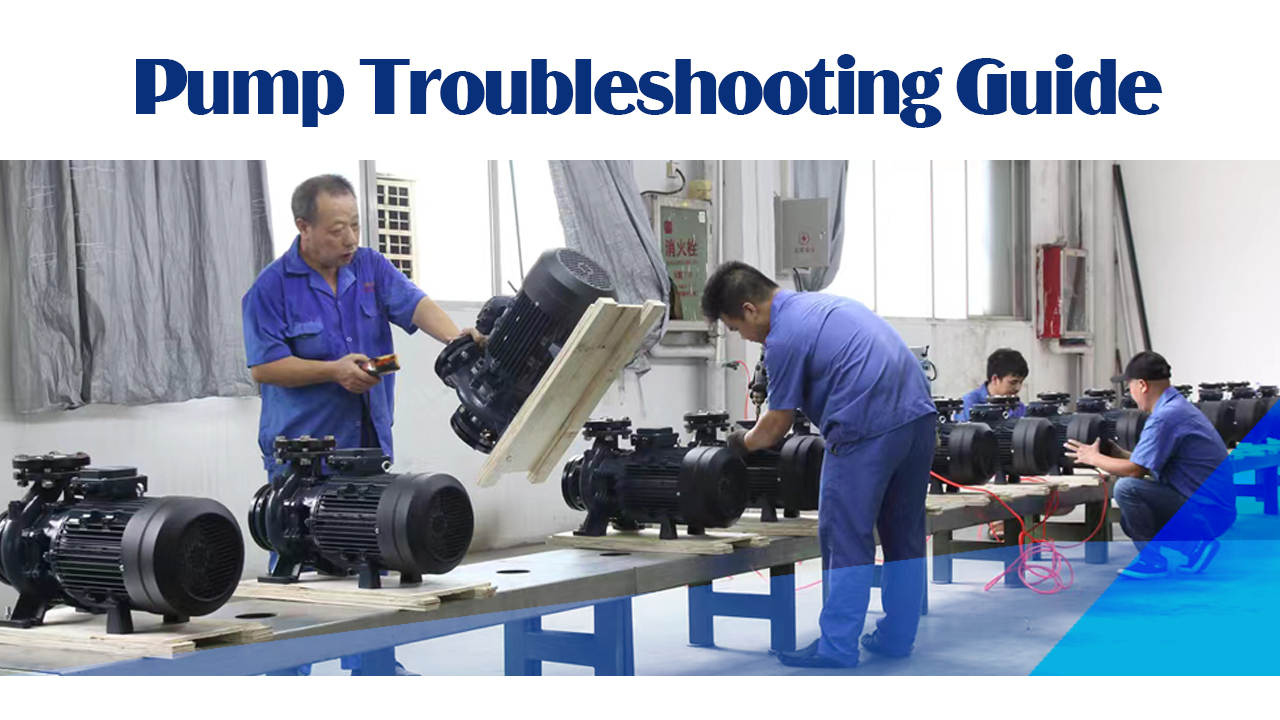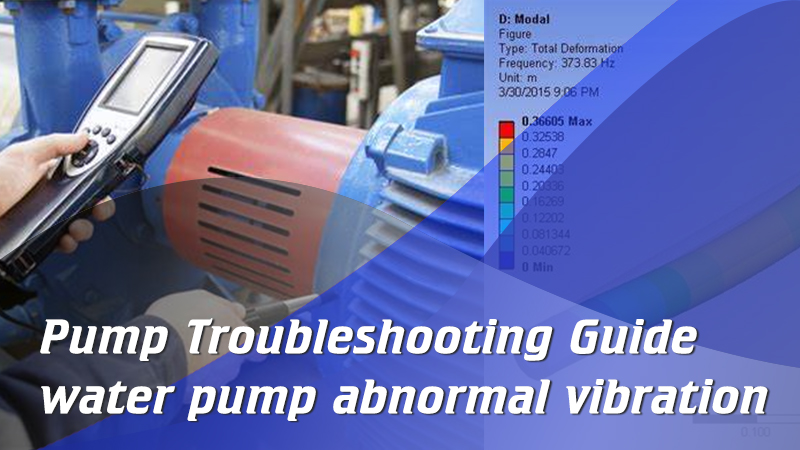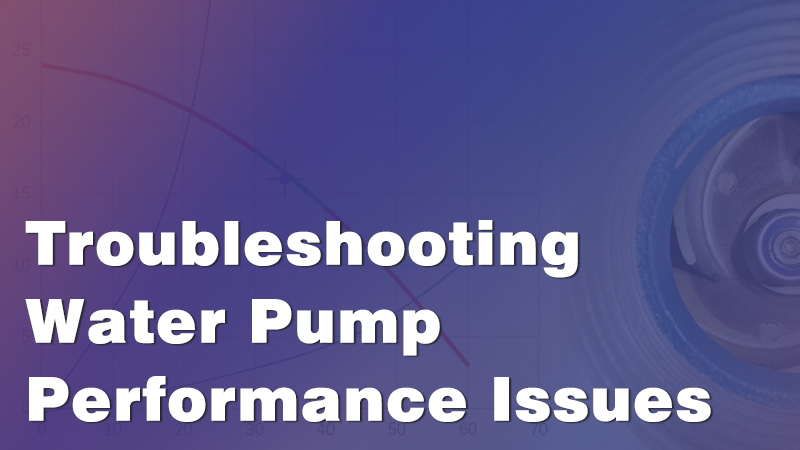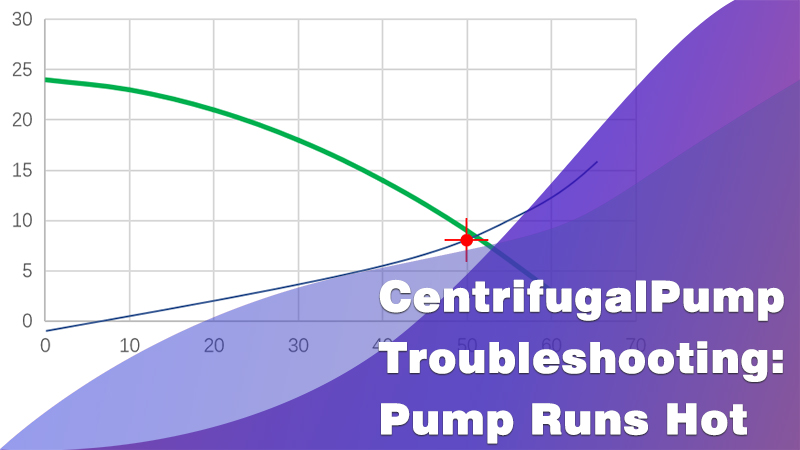+86 13816508465
Pump Troubleshooting
Nov. 04, 2024
Water pumps play a crucial role in various applications, including home water supply, agricultural irrigation and municipal sewage transfer, etc. They work tirelessly to move water where it needs to go. But like any mechanical products, they may falter overtime. Here's a guide to help you catch those red flags early and keep your pump in good shape and last longer.

1. Abnormal Noise
A healthy water pump should produce a steady and even sound. If you start hearing unusual noises, it could indicate a problem.
Grinding or knocking sounds: This might be due to foreign objects inside the pump or interference between the rotor and Stator.
Constant buzzing: This may suggest motor overload or an abnormal operating state.
When you notice abnormal sounds, it’s important to stop using the pump and inspect its condition as soon as possible.
For more detail instructions, please go to:
Pump Troubleshooting Guide:Abnormal Noise

2. Vibration Issues
Excessive pump vibration can be disruptive and indicative. Possible reasons would be:
Loose Mounting: Ensure your pump is securely fastened to reduce vibration.
Sympathetic Vibration: This happens when the pump's operating frequency matches the natural frequency of the pump's surroundings, causing a resonance effect. Adding shock absorbers can help.
Dynamic Balance Loss: Damaged impellers or failed bearings can cause the pump to vibrate visibly.
The vibrations only affect pump performance but can also damage other equipment. Once founded, they should be troubleshoot in time.
For more detail instructions, please go to:
Pump Troubleshooting Guide——Water Pump Abnormal Vibration

3. Performance Issues
The performance of your water pump directly affects its effectiveness. A pump that's not performing as expected might be showing signs like:
Inefficient Water Flow: Check for clogged filters, blocked inlets, or issues with the pump's impeller. Sometimes, if a pump doesn’t prime correctly, it will also has a reduced performance.
Reduced pump head: If your pump's head deviates from the design value, it might be due to system resistance that's too high or too low. Adjusting valves or pipe diameters can help.
Unstable water pressure: A M.Seal failure will cause fluctuating water pressure.
Regularly monitor the water flow and address potential problems promptly to ensure your pump works at good status.
For more detail instructions, please go to:
Troubleshooting Water Pump Performance Issues: A Comprehensive Guide

4. Excessive Heat
While water pumps generate some heat during operation, temperatures rising beyond normal ranges could indicate trouble:
Overheating: A motor that runs too hot may be experiencing overload, inadequate lubrication, or internal failure.
Abnormal exterior temperature: If the pump casing feels excessively hot, it could indicate internal components are grinding against each other.
It’s a good idea to monitor the pump’s temperature with a thermometer and ensure proper ventilation.
Centrifugal Pump Troubleshooting: Pump Runs Hot
5.Other Visible Signs of Wear
Pump failures can also present as non-stop operation, startup issues, water leakage, or cycling. Our FAQ offers extensive troubleshooting for these common failures.
https://www.streampumps.com/product-qa/
https://www.streampumps.com/pump-troubleshooting/
Conclusion
Regularly monitoring the running status of your water pump and recognizing common signs of failure can help you identify issues early and take action.
Here are some maintenance tips for home users:
Regular Inspection: Keep an eye on your pump's performance and listen for changes in noise or feel for increased vibration.
Proper Venting and Exhausting: Make sure your pump is vented correctly to avoid airlocks and cavitation.
Quality Components: Invest in a high-quality pump from a reputable manufacturer to ensure longer service life and fewer issues.
A little care today can save significant trouble tomorrow.
If you're unsure, don't hesitate to consult with a professional.
After all, a well-maintained pump is a quiet, efficient, and reliable pump.
Address
No.17 XeDa Jimei Ind. Park, Xiqing Economic Development Area, Tianjin, China
Telephone
+86 13816508465
QUICK LINKS